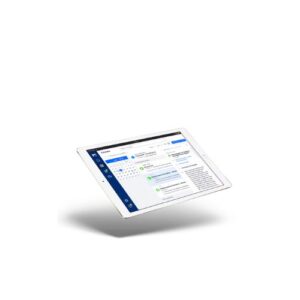In today’s fast-paced busi ness environment, effective management of sales commissions is essential for maintaining motivated sales teams and ensuring accurate financial reporting. Commission tracking software is designed to streamline the process of calculating, managing, and reporting sales commissions, making it easier for businesses to reward their sales representatives based on performance. These tools not only automate complex calculations but also provide a transparent platform for sales professionals to track their earnings in real time. This article will explore the key features, benefits, and considerations of commission tracking software and its role in enhancing overall sales performance.
ness environment, effective management of sales commissions is essential for maintaining motivated sales teams and ensuring accurate financial reporting. Commission tracking software is designed to streamline the process of calculating, managing, and reporting sales commissions, making it easier for businesses to reward their sales representatives based on performance. These tools not only automate complex calculations but also provide a transparent platform for sales professionals to track their earnings in real time. This article will explore the key features, benefits, and considerations of commission tracking software and its role in enhancing overall sales performance.
What is Commission Tracking Software?
Commission tracking software is a specialized tool that helps businesses manage and automate the commission payment process for their sales teams. It provides a centralized platform where sales representatives can view their commissions, access reports, and receive timely payments. The software typically integrates with other business systems, such as Customer Relationship Management (CRM) tools and accounting software, ensuring seamless data flow and reducing the risk of errors in commission calculations.
Key Features of Commission Tracking Software
- Automated Calculations: One of the primary benefits of commission tracking software is its ability to automate commission calculations. Sales commissions can be based on various factors, including sales volume, product type, and special promotions. With automated calculations, businesses can ensure accuracy and save time, allowing sales teams to focus on what they do best—selling.
- Real-Time Reporting: Commission tracking software often includes reporting features that provide insights into sales performance, commission structures, and payout histories. Sales representatives can access this information in real time, enabling them to make informed decisions about their sales strategies and identify areas for improvement.
- Customizable Commission Plans: Different sales teams may have unique commission structures based on their roles or products. Commission tracking software allows businesses to customize commission plans to suit individual needs, ensuring that each team member is incentivized appropriately for their contributions.
- Integration with Other Tools: Many commission tracking solutions can integrate with existing business software, such as CRM and ERP systems. This integration allows for a more holistic view of sales data and helps streamline the entire sales process, from lead generation to commission payment.
- Transparency and Accessibility: Transparency is vital in fostering trust within sales teams. Commission tracking software offers a platform where sales representatives can view their earnings, track their performance, and access historical data. This visibility helps prevent disputes and promotes accountability among team members.
Benefits of Using Commission Tracking Software
- Increased Motivation: When sales representatives can easily track their commissions, they are more likely to stay motivated and engaged. Knowing how their efforts directly impact their earnings can drive them to perform better.
- Reduced Errors: Manual commission calculations can lead to errors that can damage relationships between sales teams and management. Automation reduces these risks, ensuring that commissions are calculated accurately and fairly.
- Time Efficiency: With automated processes in place, businesses can save significant time on commission calculations and reporting. This efficiency allows sales managers to focus on strategic initiatives rather than administrative tasks.
- Better Financial Planning: Accurate commission tracking enables better forecasting and budgeting. Businesses can gain insights into commission expenses, helping them make informed financial decisions.
Considerations When Choosing Commission Tracking Software
While there are numerous commission tracking software solutions available, it’s essential to consider several factors before making a choice:
- Scalability: As your business grows, your commission structure may change. Look for software that can scale with your business and accommodate future needs.
- User-Friendly Interface: A user-friendly interface ensures that both sales representatives and management can easily navigate the software without extensive training.
- Support and Training: Opt for software providers that offer robust customer support and training resources to help your team maximize the tool’s potential.
- Cost: Consider your budget and the overall value the software brings. Look for solutions that offer a good balance between features and cost.
In conclusion, sales automation tools like commission tracking software play a critical role in modern sales organizations. By automating commission calculations and providing real-time insights, these tools help businesses enhance transparency, motivate sales teams, and streamline their operations. Investing in the right commission tracking solution can ultimately lead to improved sales performance and a more satisfied workforce. As organizations continue to evolve, leveraging technology in managing sales commissions will become increasingly important in fostering success and driving revenue growth.

